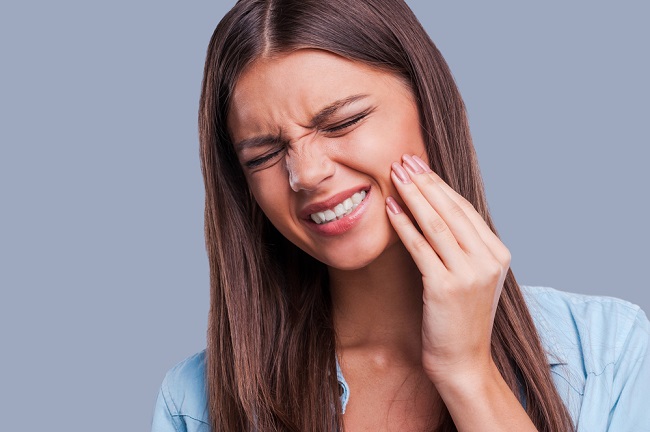Cavity
Perforated teeth are a condition in which the tooth is damaged which erodes the exterior (enamel) to the inside of the tooth (dentin), until it forms a hole. Tooth decay is caused by the buildup of bacteria in the mouth, frequent eating of sweet foods, and poor oral hygiene.

Hollow teeth are a common disorder, both in adults and children. Therefore, the dental examination needs to be done routinely, because generally cavities do not cause pain in the beginning so difficult to detect. Pregnant women or children with cavities should consult with a doctor immediately, as treatment and prevention may be different. If cavities are not treated immediately, the holes will dilate, as well as risk infections and tooth loss.
Dental Tooth Symptoms
The symptoms that appear on each person may differ, depending on the severity and location of the holes on the teeth. When the hole is small and newly formed, symptoms may not appear or not. However, when the condition worsens, the symptoms will be:
- Toothache, especially when biting or when teeth are pressed.
- Teeth become sensitive.
- Pain when eating sweet or cold or hot foods or drinks.
- There are obvious holes in the tooth
- Spontaneous, spontaneous, painless teeth.
- There are parts of teeth that change color to white, brown, or black.
Dental Causes
Teeth holes are generally initiated by the presence of plaque on the mouth. Plaque comes from food scraps containing sugar such as bread, cereal, milk, soft drinks, fruit, cakes, or sweets, which are then converted by natural bacteria in the mouth to acid. The combination of bacteria, acids, leftover food in the mouth, and saliva will form the plaque attached to the tooth. The acid contained in the plaque slowly erodes the layers of the teeth, to form a hole in the tooth.
In addition, cavities can also be triggered by several other factors, such as:
- Not using fluoride toothpaste. Fluoride is a compound commonly contained in toothpaste, serves to treat health and prevent tooth decay.
- Regular use of medicines, supplements, vitamins, or herb products containing sugar.
- Growing age.
- Suffering from eating disorders (eg anorexia or bulimia) and acid reflux disease.
- Dry mouth.
- Too much food or drink sweet or sour.
- Rarely brush or clean teeth
Punched Tooth Diagnosis
Checks usually begin with sessions frequently asked questions, especially around the symptoms experienced by the patient. The dentist will then see the condition of the mouth and teeth, then touch the teeth with a special tool to check the soft areas due to tooth decay.
Tooth rays can also be used to check the condition of the teeth. X-rays can show the damage that occurs in the teeth, even though the damage has not been seen with the eye.
Perforated Tooth Treatments
The treatment of cavities may vary, depending on the severity of the condition experienced by each patient. Some medical measures that can be done to cope with cavities include:
- Filling. Filling or dental patch is the most common action done in dealing with cavities. During the process, the doctor will first use the drill to remove the damaged tooth. The removed teeth are then patched with special materials, such as resin composite, porcelain, gold, or silver.
- Crown. Crown or bracket is usually selected to deal with more severe damage or to patients with weak tooth condition. Crown is the act of mounting a dentist's crown on a broken tooth. Most of the damaged teeth will be eroded, leaving a small portion for the crown of a dentist's crown. Just like the material used for dental fillings, the crown of a dentist can be made of gold, porcelain, or resin composite.
- Root canal . Root canal or root canal treatment is generally done when the damage has reached the inside of the tooth or tooth root. This action is to fix the damage without having to pull out the tooth.
- Toothbrushes. This action is usually done when the damage is severe and can not be recovered. The installation of dentures or dental implants into a solution to fill the tooth gap is removed.
Hollow teeth will cause pain, especially if the condition worsens. Some ways that can be done to relieve pain are:
- Tooth cleaning to sensitive areas.
- Avoid foods and drinks that are too hot or too cold.
- Taking painkillers, such as ibuprofen or diclofenac. However, the use of these medicines should be on the recommendation of a physician.
Prevention of Perforated Teeth
Porous teeth are a common disorder and can occur in all person. Some things you can do to prevent cavities are:
- Brushing your teeth twice a day with fluoride toothpaste.
- Cleaning teeth with dental floss at least once a day .
- Reduce the consumption of sweet or sour foods and drinks, such as candy or soft drinks.
- Reduce snacking habits.
- If cavities are caused by health conditions, such as stomach acid reflux disease or dry mouth, consult a physician about how to cope.
- Consult a physician first before using any medications, supplements or herbal products.
The following foods are recommended for consumption, so that healthy teeth more awake:
- Fruits and vegetables rich in fiber, such as apples, spinach, and cucumber.
- High-calcium foods, such as beans and cheese.
- Low-sugar chewing gum containing xylitol.
- Tea black or green tea without sugar/ sweetener.
- Drinking water containing fluoride.
Do a routine check to the dentist at least 2 times a year, to know the condition of dental health . This will facilitate treatment if the teeth are impaired and prevent further damage.
Dental Tooth Complications
Some complications may arise due to the presence of cavities. These risks include:
- Difficulty chewing food.
- Tooth abscess which can then trigger complications of dangerous diseases, such as sepsis.
- Continuing toothache -menerus.
- Broken teeth or dates.